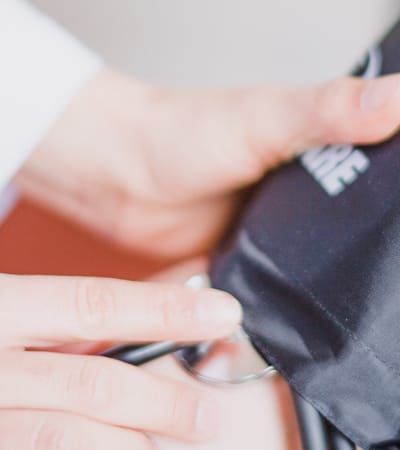Occupational Therapy/Certified Hand Therapy
Reach Your Highest Levels of Functionality, Achieve Independence, and Gain Fulfillment with Comprehensive Occupational Therapy at Insight
Occupational therapy is a branch of healthcare that helps patients regain maximum function after an injury or illness has led to physical or mental impairment that affects the ability to participate in normal activities of daily life.
Our occupational therapists at Insight Comprehensive Therapy help patients develop, recover, improve, and maintain the skills needed for everyday living and working. We can work with patients on a wide range of needs, including pain management, neuro-recovery, orthopedics, ergonomics, mental health, community reintegration, and group therapy. In addition to this, occupational therapy helps patients regain independence and teaches modifications or techniques to help patients become as independent as possible in their daily living. Our team is also able to assess a patient’s progress and ability to return to work.
Hand therapy is a specialty area of occupational therapy that treats upper extremity conditions in the shoulder, arm, elbow, forearm, wrist, and hand. Sakina Bohra, OTD, CHT is a certified hand therapist with over 20 years of experience. She specializes in evaluating any diagnosis between the shoulder to the fingertips and often sees post-operative cases ranging from carpal tunnel syndrome to rotator cuff repairs.
For more information on occupational therapy and certified hand therapy at Insight, or to make an appointment, contact us today.
occupational therapy list of appropriate indications
Occupational Therapy is a healthcare profession that helps individuals regain maximum function after injury or illness that has led to some degree of physical or mental impairment affecting their ability to participate in normal activities of daily living.
Who can benefit from Occupational Therapy services?
Occupational Therapy services are available to individuals experiencing various diagnoses or problems including:
- Hand Injuries
- Parkinson’s
- Arthritis
- Stroke
- Fractures
- Head Injury
- Multiple Sclerosis
- Joint Replacement
- Spinal Cord Injury
What types of functional problems do Occupational Therapists address?
Any type of problem limiting an individual’s ability to efficiently and safely participate in normal or daily activities including:
- Dressing
- Bathing
- Grooming
- Meal Preparation
- Household Chores
- Work Activities
What type of limitations do Occupational Therapists address?
For Restoration of Physical Function:
- Decreased upper extremity strength/ROM
- Unable to sit unsupported
- Unable to safely negotiate walker or w/c in surroundings
- Needs assist in bed mobility or transfers
- Decreased coordination
For Compensatory Techniques to Improve ADL when:
- Visual field cuts are present
- Excessive energy is expended for ADL due to poor pacing
- Loss of use of dominant hand
- Precautions limit ADL performance (e.g. laminectomy, THR, etc)
For Orthotics and Self Help Devices when:
- Unable to perform fine motor tasks (e.g. button, snap, zip, clasp, tie)
- Difficulty dressing lower extremities
- Inability to perform self ROM and at risk for contracture development
- Needs assist to support UE for feeding and other ADL
For Restoration of Function in ADL when:
- Can’t answer phone
- Incorrect/poor sequencing of tasks
- Difficult managing checkbook
For Restoration of Sensory-Integrative Function:
- Demonstrates neglect of an extremity or one side of the body
- Unable to name or identify objects by touch
- Difficulty with color, shape, and/or size discrimination
- Impaired visual tracking
- Poor hot/cold discrimination
For “Active Treatment Programs” for Psychiatric illnesses when:
- Unable to orient to the “real” time, place, etc.
- Difficulty attending to the task at hand
- Unable to exit home secondary to fear, paranoia, etc.
occupational therapy list of appropriate indications
Occupational Therapy is a healthcare profession that helps individuals regain maximum function after injury or illness that has led to some degree of physical or mental impairment affecting their ability to participate in normal activities of daily living.
Who can benefit from Occupational Therapy services?
Occupational Therapy services are available to individuals experiencing various diagnoses or problems including:
- Hand Injuries
- Parkinson’s
- Arthritis
- Stroke
- Fractures
- Head Injury
- Multiple Sclerosis
- Joint Replacement
- Spinal Cord Injury
What types of functional problems do Occupational Therapists address?
Any type of problem limiting an individual’s ability to efficiently and safely participate in normal or daily activities including:
- Dressing
- Bathing
- Grooming
- Meal Preparation
- Household Chores
- Work Activities
What type of limitations do Occupational Therapists address?
For Restoration of Physical Function:
- Decreased upper extremity strength/ROM
- Unable to sit unsupported
- Unable to safely negotiate walker or w/c in surroundings
- Needs assist in bed mobility or transfers
- Decreased coordination
For Compensatory Techniques to Improve ADL when:
- Visual field cuts are present
- Excessive energy is expended for ADL due to poor pacing
- Loss of use of dominant hand
- Precautions limit ADL performance (e.g. laminectomy, THR, etc)
For Orthotics and Self Help Devices when:
- Unable to perform fine motor tasks (e.g. button, snap, zip, clasp, tie)
- Difficulty dressing lower extremities
- Inability to perform self ROM and at risk for contracture development
- Needs assist to support UE for feeding and other ADL
For Restoration of Function in ADL when:
- Can’t answer phone
- Incorrect/poor sequencing of tasks
- Difficult managing checkbook
For Restoration of Sensory-Integrative Function:
- Demonstrates neglect of an extremity or one side of the body
- Unable to name or identify objects by touch
- Difficulty with color, shape, and/or size discrimination
- Impaired visual tracking
- Poor hot/cold discrimination
For “Active Treatment Programs” for Psychiatric illnesses when:
- Unable to orient to the “real” time, place, etc.
- Difficulty attending to the task at hand
- Unable to exit home secondary to fear, paranoia, etc.




